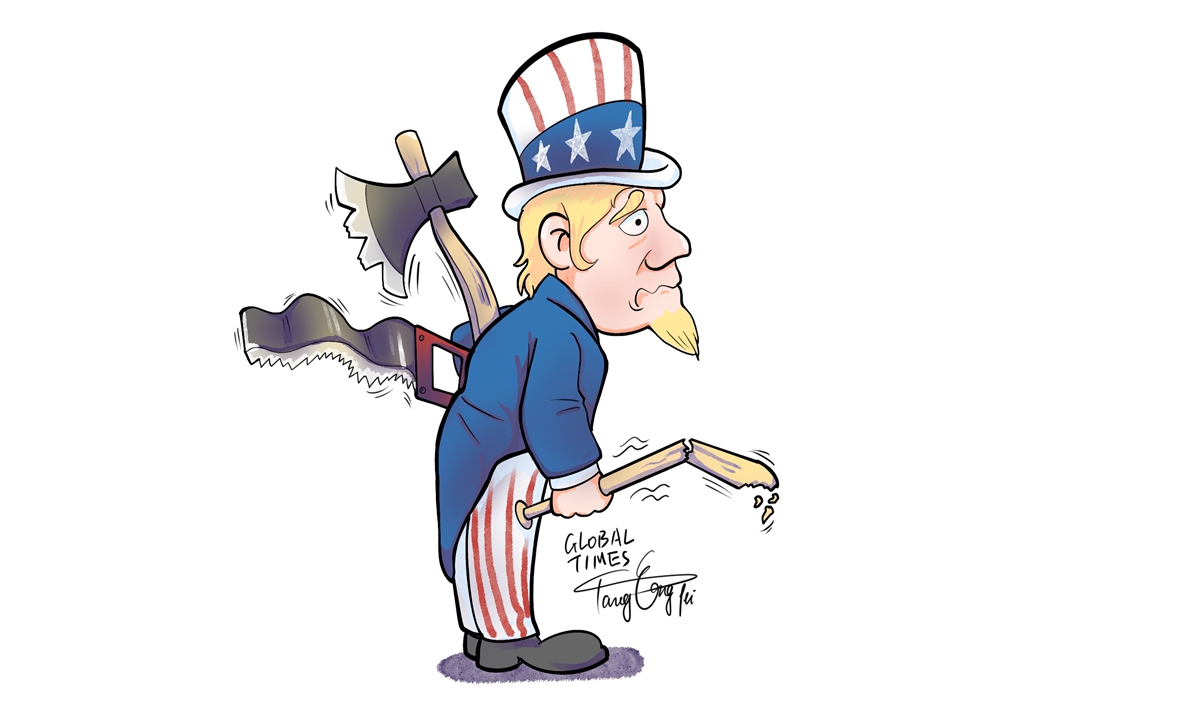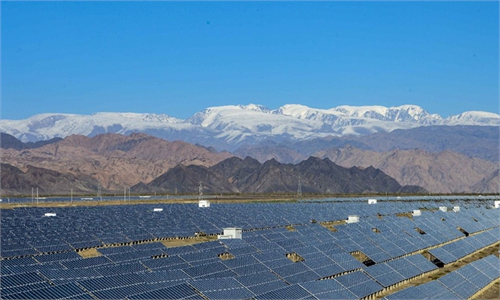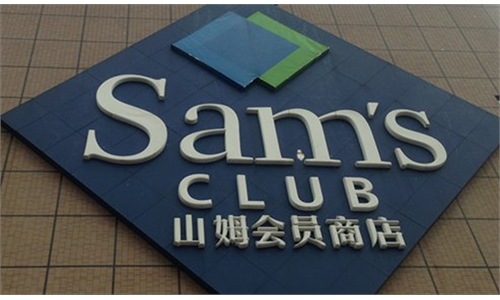COMMENTS / EXPERT ASSESSMENT
US is barking at the wrong tree by sanctioning China

Illustration:Tang Tengfei/GT
As the world enters 2022, China has repeatedly taken new steps to expand free trade, in contrast, the US chooses to impose trade sanctions, one after another. From Biden signing the so-called Uyghur Forced Labor Prevention Act into law in December 2021, to US Congress threatening the International Olympic Committee over the use of Xinjiang cotton by apparel suppliers Anta and HYX Group for the Beijing 2022 Winter Games, the US has been keeping itself busy.
Objectively speaking, the US is barking at the wrong tree by sanctioning China.
It is true that the US has used economic sanctions more than any other country throughout the 20th century; those American politicians who call for sanctions against China and ban all imports from China's Xinjiang Uygur Autonomous Region think they are experienced in sanctioning other countries. Yet they don't know the Communist Party of China (CPC) and the Chinese Government have accumulated the most abundant experience in tackling economic sanctions and have a century long record of producing economic miracles.
From leading an epic revolution to the early phase of the People's Republic of China (PRC), it is the cruel economic sanctions that have, partially, strengthened the capability of CPC and the Chinese government, founding the PRC in 1949, and thereafter turning a poor and weak agricultural country into the world's largest industrial nation. And, one of those ruthlessly imposing all-round economic sanctions against China at that time was the US government.
China has now become the world's largest manufacturing powerhouse, largest exporter and the second largest economy.
When China's nominal GDP will surpass that of the US has long been a hot topic in international politics, business and academia communities. However, it was a total other story during the construction period of the Revolutionary era bases, or even before the founding of the PRC when the US had curbed trade with China. From the perspective of China, the disparity of strength between the two sides at that time was too large to even contemplate.
Revolutionary bases were scattered across poor and outlying areas. When the post-war economic recovery was completed in 1952, gross national income of the country stood at 67.9 billion yuan, or $18.6 billion, according to the exchange rate of import and export trade. Meanwhile, the US' gross national product was $351.6 billion in 1952, 19 times of China's GNP that year.
Comparing the output of major industrial products between China and the US in 1949, the gap was just huge. For instance, the US produced 248.92 million tons of crude oil, 2,074 times that of China then. And it produced 70.74 million tons of raw steel, 442 times that of China.
Before the newly founded PRC gained a firm foothold, the US brought the largest local war since the World War II to China's northern doorstep. China's overseas assets suffered huge losses due to the US moved to freeze them, such as during 1950 after the outbreak of the Korean War, about $100 million of Chinese assets were frozen in the US. But had all these stopped the growth of CPC and PRC?
Under blockades and the fire of war, the grain output in many Revolutionary bases recorded double digit increases, and many industries were set up from nothing in the country.
There is no doubt that we should stick to the bottom-line thinking and be ready to deal with any outside challenge. However, instead of confronting the US, we are more willing to carry out economic and trade exchanges with the US on an equal and mutually beneficial basis.
As for those politicians in Washington beating the drum of imposing sanctions against China, we suggested they learn the history of the CPC for the sake of their own future economic prospects.
Five thousand years have witnessed the rise and fall of great powers and the rise and fall of civilizations. In China, which is in the course to realize the great rejuvenation, we wish the 245-year history of the US a long and steady journey.
The author is a research fellow at the Chinese Academy of International Trade and Economic Cooperation of China's Ministry of Commerce. bizopinion@globaltimes.com.cn



